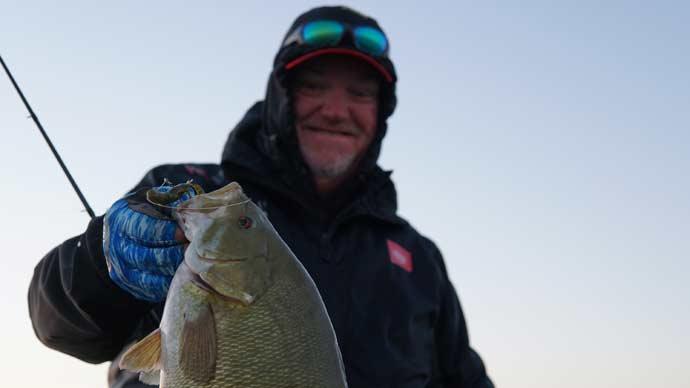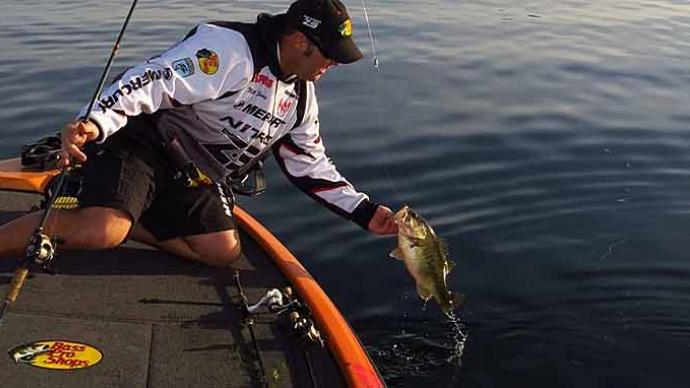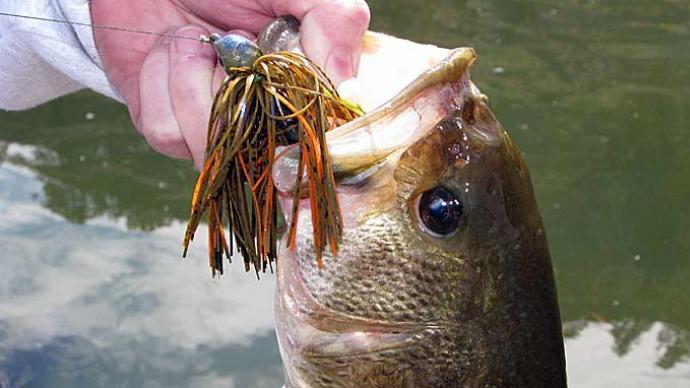
The old saying "It's called fishing, not catching" often applies when we are on the water. Fishing is not always easy; sometimes, getting a bite can be downright difficult. While it's not always fun, it's also what makes fishing so rewarding when you finally put the puzzle pieces together and trick a living creature into biting an artificial lure. Nobody likes fishing and not catching any fish, but it happens. Thankfully, some ways to get bites exist, even in the most challenging fishing conditions.
What Makes Fishing Difficult?
There are many reasons why fishing can be tough, but not all of them are in our control. Environmental conditions are one of the biggest reasons fishing can be slow, especially in extreme heat and cold weather. These are two surefire ways to slow down the bass and give them a case of lockjaw and a reason not to bite your offerings. Other reasons could be the water, either muddy water, low water, or overall water quality. But, even in these situations, getting fish to bite is still possible with the proper adjustments.
Fishing pressure or seasonal transitions are other reasons fish may be hard to catch. On popular bodies of water, bass can get wise to lures if they see them all the time, and this is one situation that requires some thinking to show the fish something different. As the seasons change, bass can also get caught in a funk as they switch from one location to another. This can be a challenging time to catch bass, as is the time right after they spawn, and they can be more sluggish than usual.
These are just a few reasons that fishing can be challenging, but there are almost always things you can do to get bites when nothing else seems to be working. Here are three approaches to try next time you are on the water and struggling to catch bass.
Finesse is Your Friend
Smaller lures and light lines are proven to catch fish when things are a little tricky. This approach is often called finesse fishing and can be a great way to catch a bass when nothing else works. Smaller baits are less intrusive and might be just what you need to catch a fish. This style of fishing works well in the extremes listed above for cold or hot weather but can also be very effective in pressured bodies of water where bass have seen many lures.
There are many different rigs and baits that allow you to downsize and show the fish a bite-sized offering. Some of the proven approaches are with soft plastic rigs like a drop-shot, Ned Rig, or shaky head. These are excellent ways to catch bass when fishing in tough conditions. Other finesse offerings are smaller sizes of popular bait styles like crankbaits, jerkbaits, and topwaters. Going down in size will give the bass a different look, and it can work when standard-sized baits don't get a sniff.
Image
A spinnerbait can be fished quickly so you can cover water and has enough flash to get a bass's attention. They are also relatively snag-resistant and can be bumped into logs and other cover to generate a reaction. Some of the best finesse approaches are done with spinning tackle and light line. Downsizing your main line or leader size can also help make it less visible to fish, which can be crucial when dealing with picky fish. Even a one-pound test change can make a difference in getting fish to bite, so be sure to experiment with lighter line to see if it makes a difference for you.
Generate a Reaction
Another way to get more fish to bite is to fish faster with quick-moving lures. Fish that see a lure whizzing past them often bite out of reaction, even if they are not in a feeding mood. This is why fast-paced lures like spinnerbaits, lipless crankbaits, plopping topwaters, and buzzbaits can be great tools when fishing is tough. You can quickly retrieve them, allowing you to cover a zone in less time.
Covering water is also a good approach when fishing during challenging conditions, and simply fishing more water can increase your chances of catching a fish. It can be a numbers game when the fish are not biting well, and by fishing more spots, you have a greater chance of running into a fish that will bite.
Go Big
This last one may sound contradictory, but sometimes it pays to show the fish something completely different and much larger. This is especially true on waters that get fished often. Most bass anglers use the same general lure sizes produced and sold at your local tackle stores, so the fish see these all the time. It can also help with high and muddy water, as bass will more likely notice your baits.
Image
Large swimbaits and glide baits are much bigger than traditional lures and stand out when the bass are not accustomed to seeing them. This is a situation when it can help by showing the fish much larger lures. This works well when the fish get conditioned to seeing the same lures reeled past them or cast to their hiding spots. By using standard baits like worms and jigs but going to bigger sizes like jumbo worms or jigs with longer skirts and bigger trailers, you can get the attention of some of those fish.
Fishing larger topwater baits and swimbaits can also separate your bait from the parade of lures that fish see daily and increase your odds. Plus, bigger baits also often appeal to bigger fish, so you can turn a day with little to no bites into one to remember with a true trophy-caliber bass.
Fishing during tough conditions is not ideal, but it's still great to spend time on the water any chance you get. By making these three adjustments, you can improve your odds of having success, even on the most challenging days on the water.




